International
Fopea denounces that the press receives an attack “every two days” in Milei’s Argentina
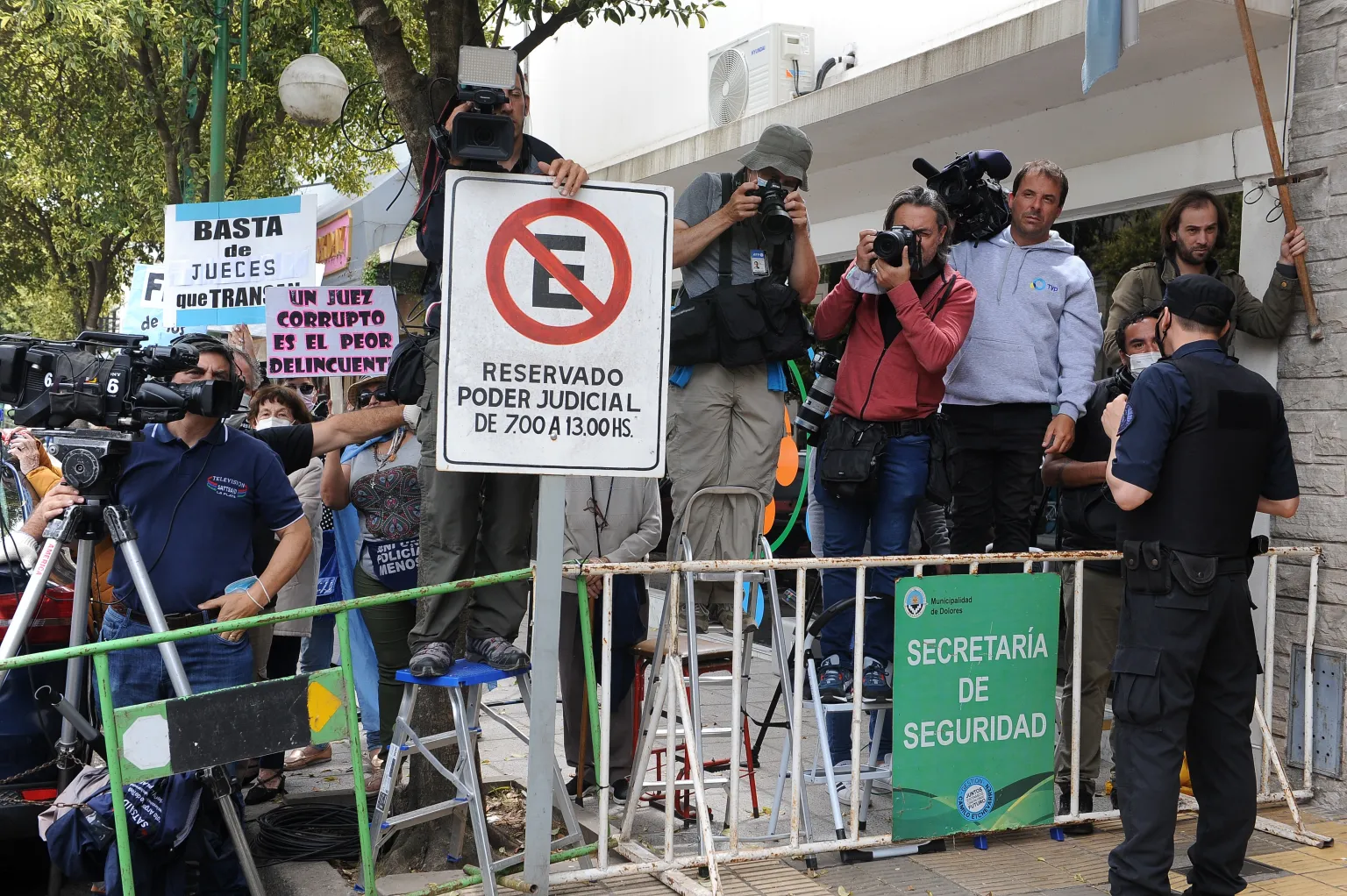
The Argentine Journalism Forum (Fopea) denounced this Tuesday that during the first year of the Government of Javier Milei there were 173 aggressions against the press, that is, “one every two days,” and most of them came from senior state officials and the president of the country himself.
“The deterioration of freedom of expression is worrying” and most attacks come in the form of “harassment and digital violence,” highlights the Fopea Freedom of Expression Monitoring in a statement that includes data and graphics, on the occasion of Milei’s first anniversary in the Argentine Government.
In 120 of those attacks, the violence came from a state source, “which implies that in 69.36% of the registered cases there was a participation of some type of public official,” Fopea added.
In addition, 22 cases of “parastatal violence, that is, of direct relatives to state power, 12.72%” were recorded.
Milei, one of the main aggressors
President Milei was the one who starred in the most aggressions against the press, 56 in total (32.37% of the total), while ten other cases were the work of national government officials (5.78%).
The rest of the aggressors were distributed among police officers, municipal, provincial and migration officials, mayors, members of the federal and provincial justice, legislators and governors.
Fopea also concludes in its analysis that of the 173 attacks, a total of 77 (44.51%) were classified as “stigmatizing speech”, that is, direct attacks on the reputation of journalists and/or media.
There were also 44 “attacks on integrity”, 23 on the “restriction of access to information”, eleven “civil or criminal judicial actions”, six cases of “censorship”, five classified as “abuse of state power”, three “attacks against property”, two of “abusive use of official advertising” and two of “internal censorship”.
The 173 cases registered by Fopea leave a trail of 275 victims, of which 153 were men, 57 women, 15 media. On other occasions, the attacks were on the press in general or on an organization of journalists.
Fopea, an organization that ensures freedom of information and quality journalism in Argentina, also denounces “the discriminatory, aggrieveing and stigmatizing tone with which the president refers to the press in general and to journalists, in particular.”
And remember that those attacks have also been carried out against international organizations.
International
Colombia says it would not reject Maduro asylum request as regional tensions escalate
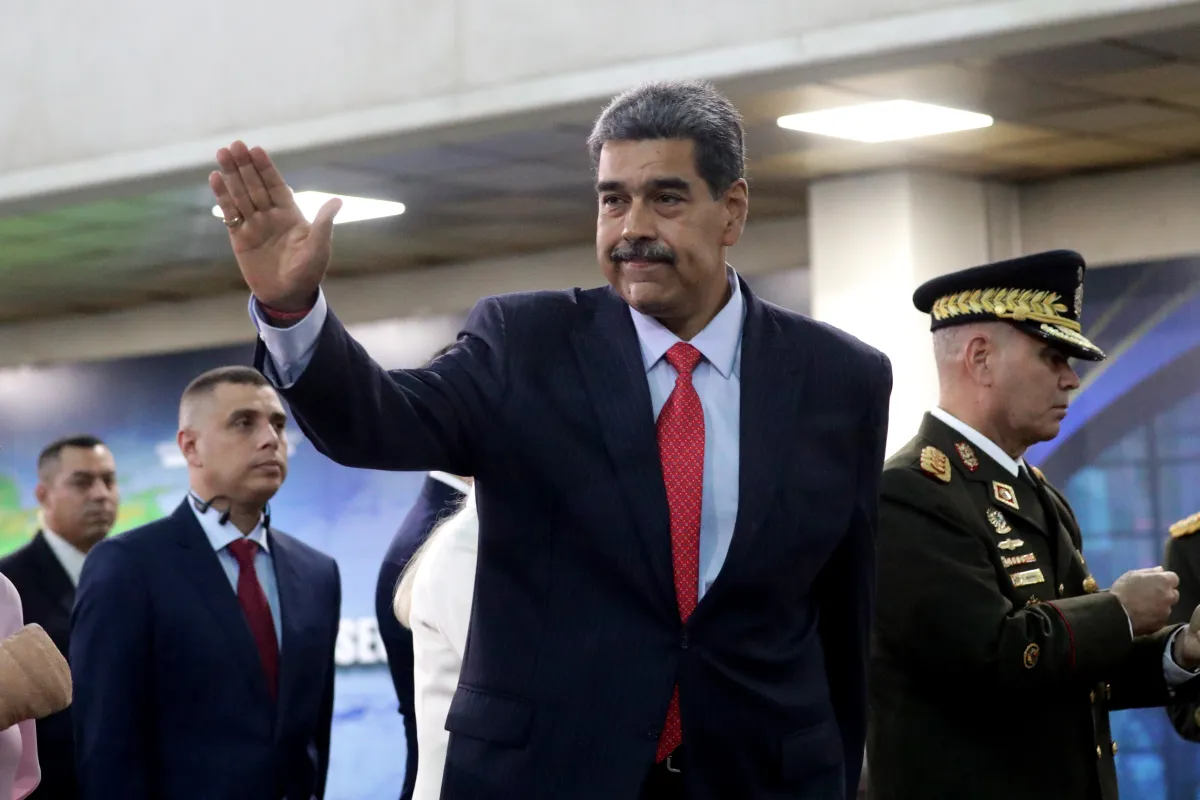
The Colombian government stated on Thursday that it would have no reason to reject a potential asylum request from Venezuelan President Nicolás Maduro should he leave office, as regional tensions persist over the deployment of U.S. military forces in the Caribbean since August.
“In the current climate of tension, negotiations are necessary, and if the United States demands a transition or political change, that is something to be assessed. If such a transition results in him (Maduro) needing to live elsewhere or seek protection, Colombia would have no reason to deny it,” said Colombian Foreign Minister Rosa Villavicencio in an interview with Caracol Radio.
However, Villavicencio noted that it is unlikely Maduro would choose Colombia as a refuge. “I believe he would opt for someplace more distant and calmer,” she added.
Colombian President Gustavo Petro also commented on Venezuela’s situation on Wednesday, arguing that the country needs a “democratic revolution” rather than “inefficient repression.” His remarks followed the recent detention and passport cancellation of Cardinal Baltazar Porras at the Caracas airport.
“The Maduro government must understand that responding to external aggression requires more than military preparations; it requires a democratic revolution. A country is defended with more democracy, not more inefficient repression,” Petro wrote on X (formerly Twitter), in a rare public criticism of the Venezuelan leader.
Petro also called for a general amnesty for political opponents and reiterated his call for forming a broad transitional government to address Venezuela’s prolonged crisis.
Since September, U.S. military forces have destroyed more than 20 vessels allegedly carrying drugs in Caribbean and Pacific waters near Venezuela and Colombia, resulting in over 80 deaths.
U.S. President Donald Trump has repeatedly warned that attacks “inside Venezuela” will begin “soon,” while Maduro has urged Venezuelans to prepare for what he describes as an impending external aggression.
International
Cuba battles out-of-control dengue and chikungunya epidemic as death toll rises to 44
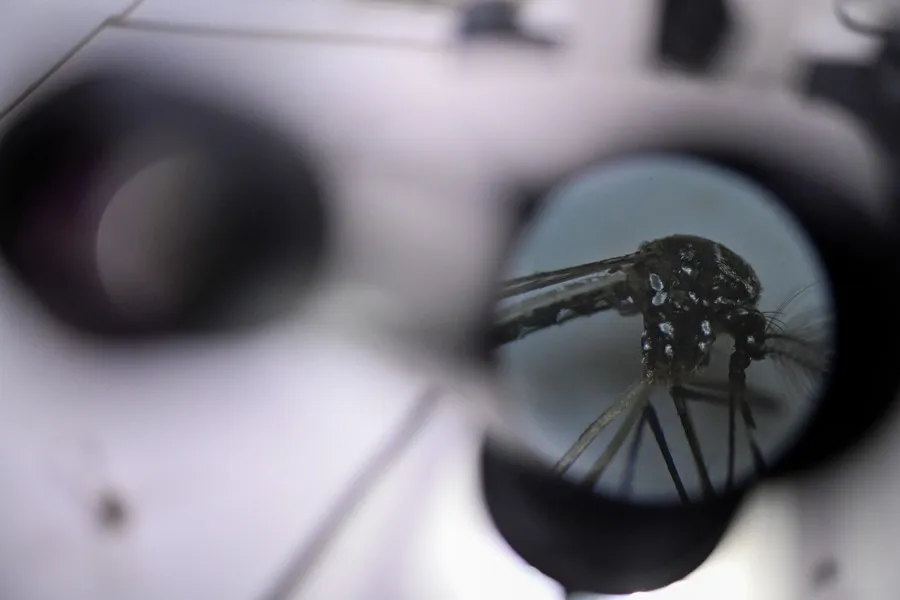
Cuba is facing a severe dengue and chikungunya epidemic that has already claimed at least 44 lives, including 29 minors, according to the Ministry of Public Health (Minsap). The outbreak—now considered out of control—has expanded across the entire country amid a critical shortage of resources to confront the emergency.
Authorities report more than 42,000 chikungunya infections and at least 26,000 dengue cases, though they acknowledge significant underreporting as many patients avoid seeking care in health centers where medicines, supplies, and medical personnel are scarce. The first cluster was detected in July in the city of Matanzas, but the government did not officially use the term “epidemic” until November 12.
Chikungunya—virtually unknown on the island until this year—causes high fever, rashes, fatigue, and severe joint pain that can last for months, leaving thousands temporarily incapacitated. Dengue, endemic to the region, triggers fever, muscle pain, vomiting, and, in severe cases, internal bleeding. Cuba currently has no vaccines available for either virus.
Minsap reports that of the 44 deaths recorded so far, 28 were caused by chikungunya and 16 by dengue.
The health crisis unfolds amid deep economic deterioration, marked by the absence of fumigation campaigns, uncollected garbage, and shortages of medical supplies—conditions that have fueled the spread of the Aedes aegypti mosquito, the primary vector for both diseases. “The healthcare system is overwhelmed,” non-official medical sources acknowledge.
Beyond the health impact, the epidemic is heavily disrupting economic and family life. The intense joint pain caused by chikungunya has led to widespread work absences, while hospital overcrowding has forced relatives to leave their jobs to care for the sick. In November, authorities launched a clinical trial using the Cuban drug Jusvinza to reduce joint pain, though results have not yet been released.
International
Ecuador on track for record violence as homicides hit highest level in Latin America again
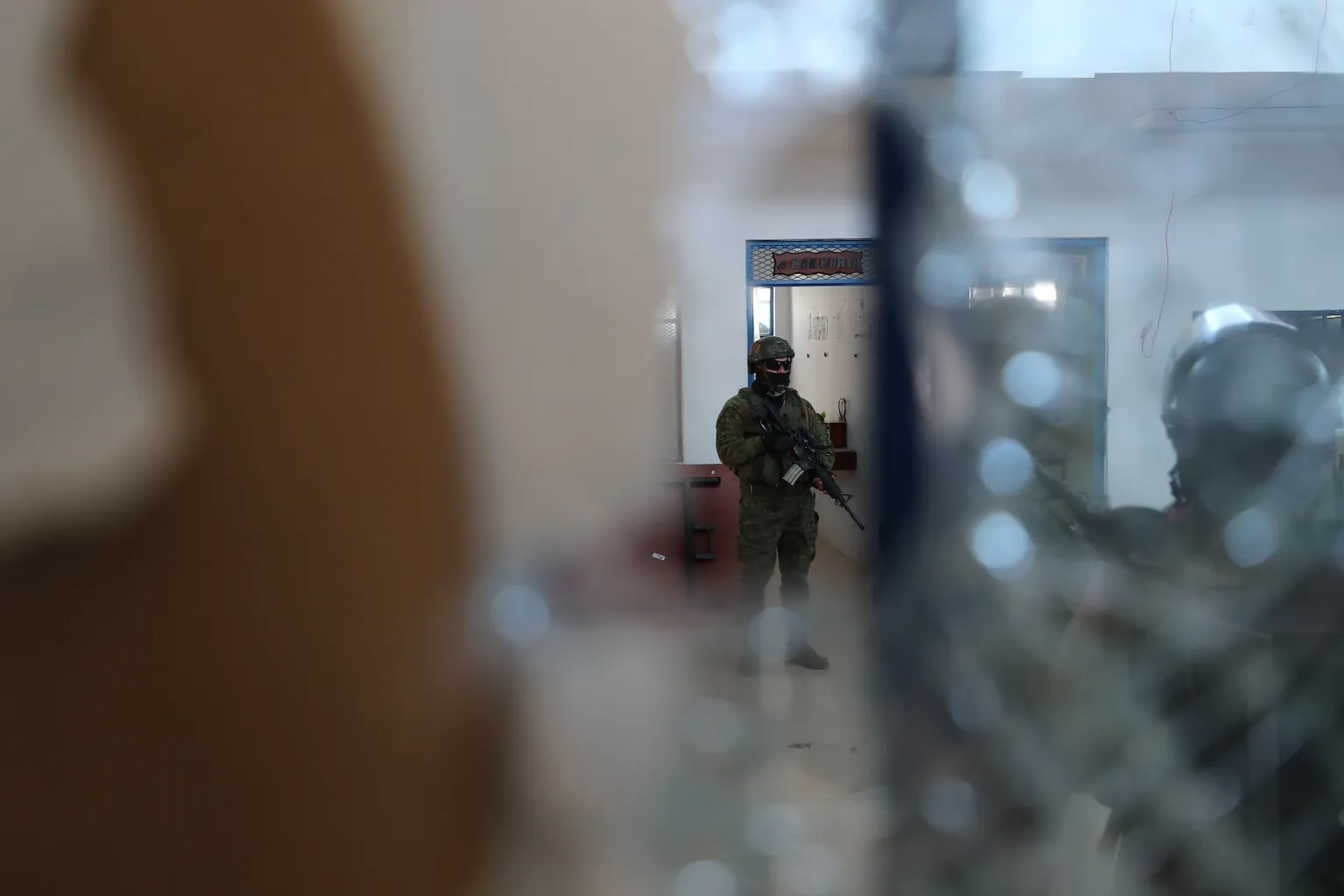
Violence in Ecuador is expected to reach historic levels by the end of 2025, with the country set to record the highest homicide rate in Latin America for the third consecutive year, according to a report released Thursday by the Armed Conflict Location & Event Data Project (ACLED). The organization warns that criminal activity is not only persisting but could worsen in 2026.
Official figures show 7,553 homicides recorded through October, surpassing the 7,063 registered throughout all of 2024. ACLED estimates that 71% of the population was exposed to violent incidents this year, despite President Daniel Noboa’s declaration of an “internal armed conflict” in an attempt to confront powerful criminal groups.
According to the report, several factors are driving the deterioration of security: a territorial war between Los Chonerosand Los Lobos, the two most influential criminal organizations in the country; the fragmentation of other groups after the fall of their leaders; and Ecuador’s expanding role as a strategic hub for regional drug trafficking.
Since 2021, violence has forced the internal displacement of around 132,000 people, while more than 400,000 Ecuadorians — equivalent to 2% of the population — have left the country. Between January and November alone, violent deaths rose 42%, fueled by prison massacres and clashes between rival gangs.
The report warns that conditions may deteriorate further. Ecuador has been added to ACLED’s 2026 Conflict Watchlist, which highlights regions at risk of escalating violence. The expansion of Colombian armed groups such as FARC dissidents and the ELN, state weakness, and a potential rerouting of drug trafficking corridors from the Caribbean to the Pacific intensify the threat.
“The president is facing a wave of violence that shows no signs of easing,” the report concludes.
-
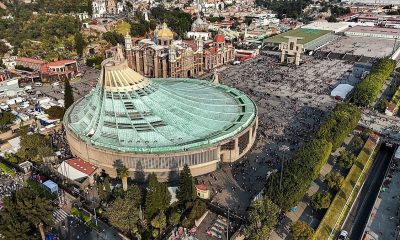
 International2 days ago
International2 days agoMexico City prepares for 13 million pilgrims at Basilica of Guadalupe
-
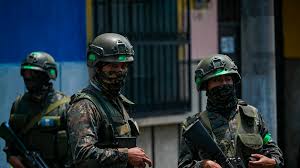
 Central America4 days ago
Central America4 days agoGuatemalan soldier wounded in clash with suspected mexican armed group near border
-
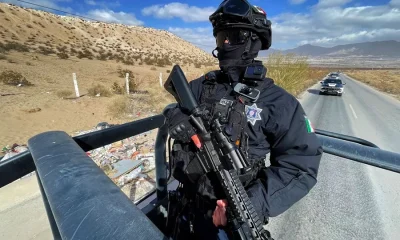
 Central America3 days ago
Central America3 days agoMexico and Guatemala launch joint security operation after Agua Zarca border attack
-

 Central America4 days ago
Central America4 days agoGuatemala reverses asset seizures after judge replacement, benefiting ex-president and former ministers
-

 Central America2 days ago
Central America2 days agoU.S. accuses Ortega regime of systematic human rights abuses in Nicaragua
-

 International2 days ago
International2 days agoWashington declares State of Emergency as atmospheric river brings severe flooding
-

 International2 days ago
International2 days agoU.S. to require five-year social media history from tourists under Visa Waiver Program
-
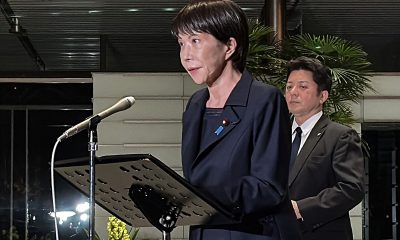
 International4 days ago
International4 days agoJapan lifts tsunami alert after strong 7.6-magnitude earthquake hits northern coast
-

 Central America2 days ago
Central America2 days agoHonduras’ electoral chief reports ongoing technical issues but says results remain intact
-

 Central America2 days ago
Central America2 days agoU.S. finds no evidence of fraud in Honduras election despite delays
-
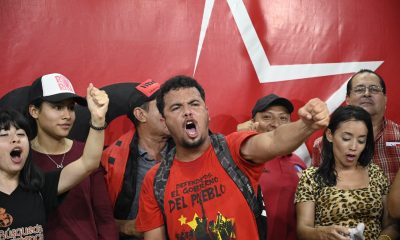
 Central America3 days ago
Central America3 days agoHonduran University: Nullifying elections without proof of fraud undermines popular sovereignty
-

 International4 days ago
International4 days agoInterior Dept. redefines 2026 Patriotic Days, sparking criticism over removed civil rights holidays
-

 Central America3 days ago
Central America3 days agoCNA director says Libre’s defeat stems from “lack of substance,” not messaging
-

 Central America2 days ago
Central America2 days agoOAS and EU urge honduran political actors to respect vote results and avoid unrest
-

 International13 hours ago
International13 hours agoCuba battles out-of-control dengue and chikungunya epidemic as death toll rises to 44
-
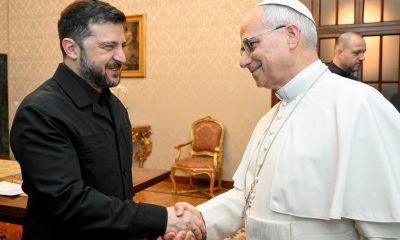
 International3 days ago
International3 days agoZelensky meets Pope Leo XIV as review of U.S. peace plan continues
-

 International13 hours ago
International13 hours agoColombia says it would not reject Maduro asylum request as regional tensions escalate
-

 Central America13 hours ago
Central America13 hours agoHonduras election crisis deepens as CNE president denounces intimidation attempts
-

 International2 days ago
International2 days agoSix ecuadorian soldiers jailed pending trial for alleged extrajudicial execution
-

 International13 hours ago
International13 hours agoEcuador on track for record violence as homicides hit highest level in Latin America again


























